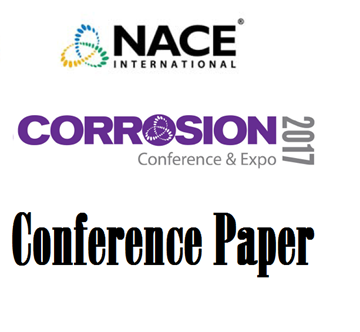Hunt Crude Oil Supply Company (HCOS) gathers and transports a variety of sour crude through its pipeline in route to the refinery. The crude is typically sour (% sulfur content) and ranges in gravity from 23.0 to 27.0. Production BSW ranges .01 to 2% and with a wide range of low rates including periods of “no flow’. The system began experiencing leaks due to internal corrosion in the mid 90’s after initiating an ILI program. HCOS began a chemical biocidal treatment program to address the suspected cause of the failure: sulfate reducing bacteria. Failures due to internal corrosion continued and increased even with system testing showing low bacteria counts. Additionally data collected from ILI runs became suspect as verification digs showed that that the MFL tool identified anomalies that in some instances were much greater than shown by the tool. These anomalies/pits were filled with magnetic debris that analytically was shown to be a matrix of iron sulfides iron oxides and organics (paraffin/asphaltenes). This debris was also present on the pipe wall in spite of a regular pigging program. Even though HCOS was having issues throughout their system the Nancy line was the most problematic. The 2002 ILI run reported 306 internal anomalies in just 13 miles of pipe. The line was taken out of service and all reported internal anomalies were repaired with new pipe. In 2005 HCOS consolidated two other systems. This created the Heidelberg/Nancy line (36 miles long). The 2006 ILI run indicated a total of 556 internal anomalies of which 352 were in the original 13 mile Nancy line. This line was again taken out of service and ninety-nine percent of the internal anomalies were replaced with new pipe. In 2007 Hunt implemented a new Synergy Services (SSI) Flow Assurance program centered around patented chemistry to address the UDC. SSI identified that the primary cause of the UDC was the iron sulfide/iron oxide debris matrix that harbored the bacteria and provided a physical barrier that prevented any biocide from working effectively. Additionally SSI postulated that polarity changes from repetitive MFL runs had magnetized the pipe line making debris removal using conventional pigging alone unsuccessful. Four years after starting the program data collected (including repeat ILI’s) indicates that UDC has been successfully addressed. Corrosion coupon data indicated excellent results with readings less than 0.25 mpy throughout the system . In the most recent ILI run (Spring 2011) for the Heidelberg/Nancy line only 16 internal anomalies were reported. None of these were in new pipe. Also as important the internal anomalies that were left in the line in 2006 had not grown in size or depth. This paper will discuss the in detail the methodology and chemistry used to accomplish to address the UDC as well and data collected to document program success.




